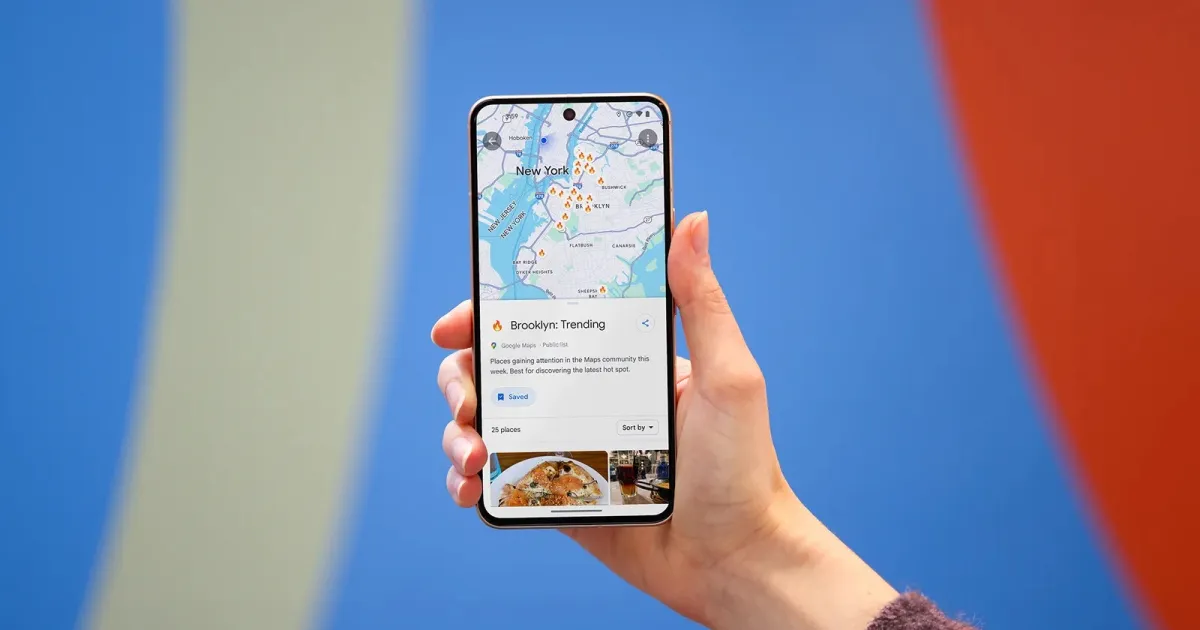Copyright Digital Trends

Google has announced it’s integrating Gemini AI into Google Maps navigation, giving you an “all-knowing co-pilot” you can talk to like a front seat passenger. I was shown a demo during an online briefing ahead of the announcement being made, and if Gemini performs in real life as it did during the presentation, it could be a game-changer for on-the-move route changes and updates. Okay Google, impress me With Gemini integration in navigation, you’ll be able to have a hands-free conversation with the AI, asking complex queries such as “is there a budget-friendly restaurant with vegan options within a couple of miles?” Gemini will take into account the route you’re currently traveling, use data from the 250 million places indexed in Google Maps, and harness AI to suggest suitable places to eat which won’t take you way off course. You can then ask follow-up questions, such as “what’s the parking like there?” and Gemini will know you’re referring to the restaurant it just suggested, and again will use the places index and information available on the web to provide you an answer. Unsurprisingly, in the brief demo Gemini performed flawlessly, finding a suitable place to eat and providing accurate parking information, and it’s got my hopes up. On numerous occasions when travelling long distances I’ve wanted to make an unscheduled stop for something to eat, but as I’m driving in an unfamiliar part of the country I don’t know where to go. Being able to just say ‘Okay Google’ and then reel off my requirements, knowing I won’t be diverted too far from my route, would be brilliant. Google stresses that this Gemini integration won’t be prone to hallucinations either, as it’s using the places data already indexed in Google Maps and “reliable sources from the web” to provide the information. The proof will be in the pudding (Hey Google, find me a great pudding place on my route), so while I’m excited, I’m also a little apprehensive until I’m actually able to try it out for myself. Google says you’ll also be able to ask other, non-navigation related questions to Gemini, such as getting a news briefing, sports scores, or a summary of your email inbox. You’ll also be able to do things such as add events to your calendar, just by speaking to Gemini. But wait, there’s more Gemini for navigation isn’t the only AI Maps treat Google has in store, as it’s also announced landmark based navigation and proactive traffic alerts as part of its navigation expansion. Landmark based navigation looks to address issues around distance-based instructions (e.g. take a right in 300 feet), by adding visible objects and buildings into the spoken directions. Maps can already say things such as “take the right after the Stop sign/traffic lights”, but these markers aren’t always on the route you’re traveling. In these cases, Maps will use AI to scan Google’s Street View images and cross reference them with the places index in Maps, to provide directions such as “turn right after the Thai Siam Restaurant”. It will look for prominent landmarks such as gas stations, restaurants and famous buildings, to provide your with clearer, more useful directions. Meanwhile, proactive traffic alerts can warn you of upcoming delays or issues on your route, even if you’re not using navigation. AI can learn your most common journeys and predict when you’re making them, sending notifications to your phone and offer alternative routes if necessary. When will you get Gemini for navigation? Gemini in the Google Maps navigation experience will be rolling out to Android and iOS in coming weeks. Meanwhile landmark based navigation and proactive traffic alerts are rolling out now, although only in the US initially. However, if you use Android Auto (where you connect your phone to your car to get Maps on your infotainment display) you’ll have to wait a little longer for the Gemini integration as Google says it’ll arrive “later”, without any firm timeline confirmed.



